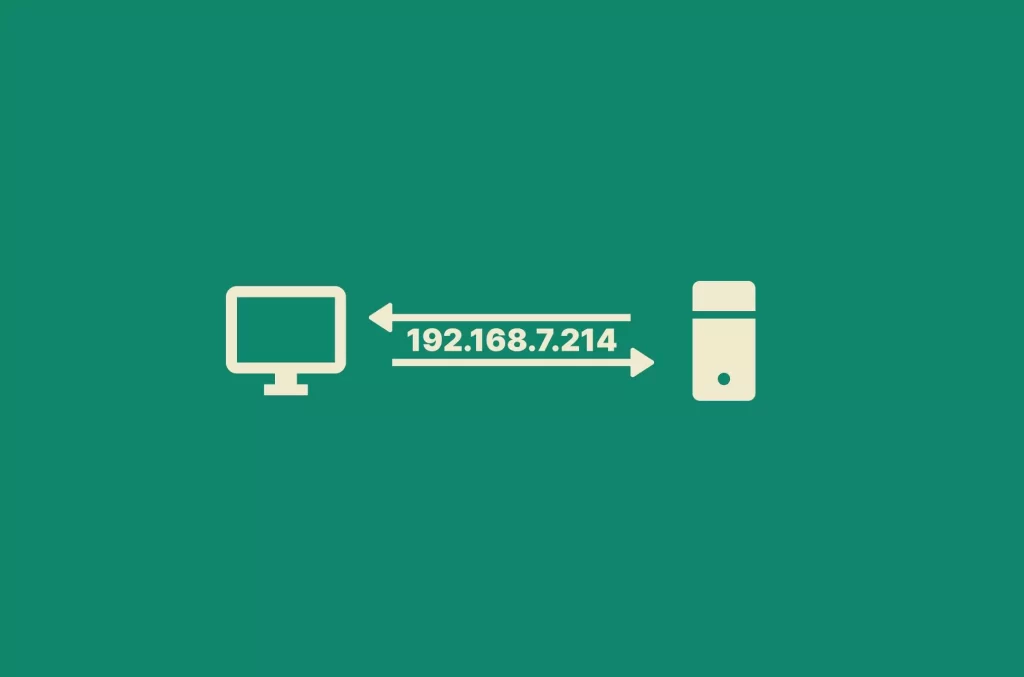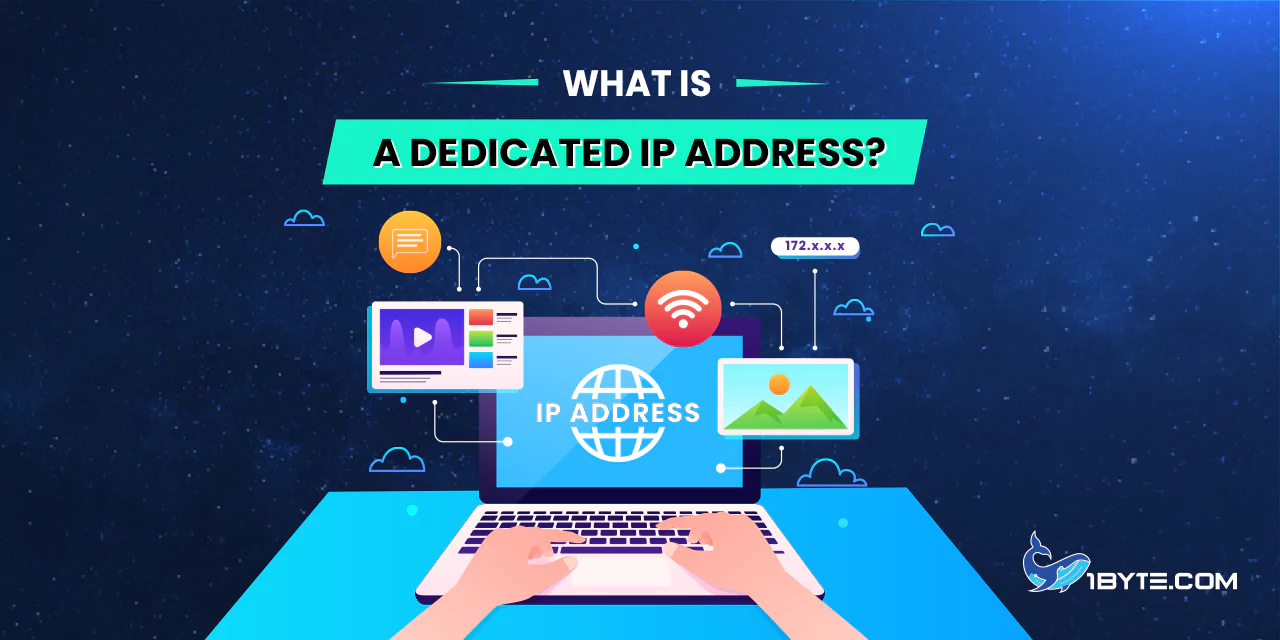Understanding the significance of a dedicated IP address is crucial in this day and age. So, what is a dedicated IP? Simply put, it’s a unique numerical label assigned solely to your website. Unlike a shared IP, dedicated IPs offer distinct advantages. Enhanced security is one of them. With a dedicated IP, your site stands resilient against potential cyber threats. This article from 1Byte delves into the intricacies of what a dedicated IP entails, unraveling its benefits and why it’s a game-changer for online presence. Whether you’re a tech enthusiast or a business owner, grasping the concept of a dedicated IP is essential in navigating the digital realm effectively.
An Overview
This section provides a comprehensive overview, shedding light on the exclusive characteristics and importance of having a dedicated IP. Delving into this topic is essential for individuals and businesses alike, navigating the complexities of the online landscape. Let’s explore the nuances of dedicated IP addresses and unravel their significance.
FURTHER READING: |
| 1. What is Cloud Networking? |
| 2. Virtual Networking Demystified: Understanding the Basics and Benefits |
| 3. What's the Difference Between Firewall vs Proxy Server? |
Definition of a dedicated IP address
A dedicated IP address is a unique numerical label assigned exclusively to a specific website. Unlike shared IPs, which are used by multiple sites, a dedicated IP provides individuality and separation. This separation is akin to having a distinct home address in the digital neighborhood.

Having a dedicated IP means that the website has its own identifier on the internet. This is akin to having a personalized space in the vast digital landscape. The website’s dedicated IP becomes its virtual location, ensuring that data is sent and received accurately.
This unique identifier is vital for various online activities, including hosting a website and sending emails. When a user types the website’s domain name into a browser, the dedicated IP is what directs the request to the correct server. It’s like a digital GPS, ensuring that the user arrives at the right online destination.
Importance in the online landscape
In the digital landscape, the importance of a dedicated IP address is multifaceted, revolving around heightened security, enhanced performance, and increased reliability. Let’s delve into the intricacies of its significance:
- Security Enhancement: A dedicated IP address is a fortress for online security, standing tall against potential threats. It provides a secure channel, particularly crucial for remote connections to home or work networks. Choosing a dedicated IP ensures a robust defense against cyber vulnerabilities.
- Performance and Reliability Boost: Seeking speed and seamless online access? Opting for a dedicated IP is the key. It acts as a catalyst, enhancing the performance and reliability of online services. With a dedicated IP, the digital journey becomes smoother and more efficient.
- CAPTCHA Challenges and Blacklisting Prevention: Shared IP addresses might expose you to unwanted challenges and potential blacklisting. Hackers sharing the same IP could trigger CAPTCHA challenges or, worse, lead to blacklisting on certain sites. A dedicated IP acts as a shield, sparing you from these hindrances and ensuring uninterrupted online activity.
- Control and Flexibility: For businesses navigating the online realm, a dedicated IP offers unparalleled control and flexibility. Take charge of your site’s reputation and safeguard your emails from being flagged as spam. In the dynamic digital arena, having a dedicated IP empowers businesses with the freedom to shape their online presence effectively.
In summary, understanding the importance of a dedicated IP address goes beyond technicalities; it’s a strategic move for fortifying security, enhancing performance, and exercising control in the vast online landscape.
Characteristics of a Dedicated IP
A dedicated IP address, akin to a unique digital identifier, boasts features that set it apart in the online realm. Let’s explore these defining traits, demystifying the essence of having a dedicated IP and how it shapes the digital experience for websites and users alike.
Uniqueness and exclusivity
A dedicated IP address stands out for its unique and exclusive nature in the online world. This distinctiveness is not just a technical detail but a fundamental aspect that shapes the digital identity of a website.
In the vast digital landscape, where shared resources are common, having a dedicated IP brings an unparalleled sense of uniqueness. This uniqueness stems from the fact that the IP address is solely assigned to one specific website. It’s like having a virtual property – a digital address that belongs to that website and only that website.
This exclusivity ensures that the website operates independently, free from the influence or activities of other websites. There’s no sharing of resources, no overlapping, just a dedicated space in the online environment. This isolation is crucial for several reasons, especially in terms of security and performance.
Security-wise, the exclusivity of a dedicated IP means that the website is not affected by the actions of neighboring sites. There’s no risk of being associated with malicious activities that might be happening on a shared IP. This independence serves as a protective barrier, safeguarding the website’s reputation and user trust.
Moreover, this exclusivity contributes to performance improvements. With no competition for resources, the website experiences smoother and more predictable performance. It’s like having a dedicated lane on a highway, ensuring a streamlined flow of data without congestion or interruptions.
Distinction from shared IPs

Dedicated IP addresses distinguish themselves sharply from their shared counterparts, bringing forth a range of benefits that set them apart in the online landscape.
- Distinctive Autonomy:
- Dedicated IPs separate websites, ensuring exclusive digital identities.
- Shared IPs involve multiple websites under the same label, potentially causing inter-site complications.
- Enhanced Security:
- Dedicated IPs provide autonomy, shielding a website from the impact of others.
- Shared IPs expose websites to vulnerabilities from neighboring sites.
- Optimal Performance:
- Dedicated IPs offer exclusive resources, preventing congestion and ensuring streamlined performance.
- Shared IPs entail shared resources, potentially leading to slower response times.
Choosing a dedicated IP is akin to having a private room in a digital hotel, compared to sharing a room with others. The distinction lies not just in technicalities but in the tangible advantages it brings – security, autonomy, and optimal performance in the dynamic digital landscape.
3 Benefits of Having a Dedicated IP
Unlocking a dedicated IP’s potential reveals a realm of benefits that extend beyond mere technicalities. In this section, explore three distinct advantages of having a dedicated IP address.
Enhanced website security
Let’s first explore how the distinct nature of a dedicated IP enhances website security:
- Isolation from External Threats:
A dedicated IP ensures that a website stands alone, immune to the actions of neighboring sites. This autonomy serves as a shield against potential threats, reducing the risk of being impacted by the vulnerabilities of shared environments.
- Mitigation of Shared IP Risks:
Unlike shared IPs, where multiple websites coexist, a dedicated IP minimizes risks associated with shared spaces. The website is not susceptible to issues on other sites that might trigger security concerns or compromise data integrity.
- Preventing Unwanted Associations:
Shared IPs may lead to unwanted associations, especially if neighboring sites engage in malicious activities. With a dedicated IP, a website avoids these associations, maintaining its reputation and user trust intact.
- Strategic Defense Measures:
Choosing a dedicated IP is a strategic move for implementing tailored security measures. Website owners gain the flexibility to customize and optimize security protocols according to the specific needs of their digital presence.
Essentially speaking, the enhanced website security provided by a dedicated IP goes beyond mere protection; it establishes a fortified digital space, safeguarding against potential threats and ensuring a resilient online presence.
Improved reliability and performance

Now, let’s discover how having a dedicated IP translates into improved reliability and performance:
- Streamlined Resource Allocation:
A dedicated IP ensures exclusive access to resources, preventing congestion and ensuring a streamlined flow of data. This leads to faster response times and a more reliable online experience for users.
- Predictable Performance:
With shared IPs, fluctuations in performance can occur due to the actions of other websites sharing the same resources. In contrast, a dedicated IP guarantees a more predictable and consistent performance, offering a reliable experience for website visitors.
- Optimal Loading Speeds:
The exclusive nature of a dedicated IP contributes to optimal loading speeds for websites. Visitors experience quicker access to content, enhancing their overall interaction and satisfaction with the site.
- Efficient Handling of Traffic:
For websites that experience varying levels of traffic, a dedicated IP provides the flexibility to efficiently handle increased loads. This adaptability ensures that the website maintains its performance even during peak usage periods.
To summarize, the improved reliability and performance associated with a dedicated IP address go hand in hand, offering a seamless online experience characterized by speed, predictability, and efficient resource utilization. Choosing a dedicated IP is not just a technical decision; it’s a strategic investment in providing a consistently reliable and high-performing digital presence.
SEO implications
The benefits of a dedicated IP extend to the realm of SEO, influencing a website’s visibility and ranking in search engine results. Let’s explore the SEO implications of having a dedicated IP:
- Search Engine Trust:
Search engines prioritize websites with dedicated IPs, viewing them as more reliable and secure. This trust factor positively influences a website’s ranking, potentially leading to higher placement in search results.
- Avoidance of Shared IP Pitfalls:
Websites sharing an IP with potentially malicious or low-quality sites may face penalties in search rankings. With a dedicated IP, a website eliminates the risk of being negatively associated with others, safeguarding its SEO standing.
- Enhanced Load Times and User Experience:
Search engines consider page load times as a ranking factor. A dedicated IP, by ensuring optimal loading speeds, contributes to a positive user experience. This, in turn, can positively impact a website’s SEO performance.
- Control Over Reputation:
For businesses, a dedicated IP offers control over the site’s reputation. It prevents scenarios where a shared IP’s negative reputation spills over, ensuring that the website’s SEO efforts aren’t compromised by external factors.
The SEO implications of a dedicated IP underscore its role not only in enhancing technical aspects but also in influencing how search engines perceive and prioritize a website. Choosing a dedicated IP is a strategic move in the broader context of improving online visibility and search engine rankings.
How to Obtain a Dedicated IP
Navigating the process of obtaining a dedicated IP is a pivotal step for those aiming to enhance their online presence. This section offers a clear guide on how to acquire a dedicated IP, empowering individuals and businesses with the knowledge needed to make informed decisions about their digital infrastructure. Let’s explore the straightforward steps to secure a dedicated IP and unlock the benefits it brings to the dynamic landscape of the internet.
Through web hosting providers
Obtaining a dedicated IP is a straightforward process, often facilitated through web hosting providers. Here’s a step-by-step guide on how individuals and businesses can secure a dedicated IP for their online ventures:
- Selecting a Reputable Web Hosting Provider:
Start by choosing a web hosting provider known for its reliability and services. Many reputable hosting companies offer dedicated IP options as part of their packages.
- Choosing the Right Hosting Plan:
Explore the hosting plans provided by the selected host. Dedicated IPs are often available as an add-on or may be included in premium hosting packages. Select a plan that aligns with the specific needs of the website.
- Contacting the Hosting Provider:
Once a suitable plan is identified, reach out to the hosting provider’s customer support. Inquire about the process of obtaining a dedicated IP, and confirm any associated costs or considerations.
- Adding the Dedicated IP to the Hosting Plan:
Upon receiving guidance from the hosting provider, proceed to add the dedicated IP to the chosen hosting plan. This is typically done through the hosting provider’s control panel or dashboard.
- Configuration and Activation:
Follow any provided instructions for configuring and activating the dedicated IP. The hosting provider may offer step-by-step guides or assistance during this phase.
- Verification and Testing:
After the configuration, verify that the dedicated IP is correctly assigned to the website. Test the website’s functionality to ensure a seamless transition to the dedicated IP.
By engaging with web hosting providers, acquiring a dedicated IP becomes a streamlined process, enabling website owners to harness the benefits of a unique online identifier with ease.
Considerations for businesses and individuals
When obtaining a dedicated IP, both businesses and individuals should consider several key factors to ensure a seamless integration into their online strategy. Here are essential considerations for making informed decisions:
- Assessing Specific Needs:
Begin by evaluating the specific needs of the website. Consider factors such as the level of online traffic, the nature of the content, and the potential impact of enhanced security and performance.
- Budgetary Considerations:
Understand the budgetary constraints associated with acquiring a dedicated IP. Different hosting plans offer varying pricing structures, so it’s crucial to choose a plan that aligns with financial considerations.
- Scalability Requirements:
For businesses with growth aspirations, consider the scalability of the chosen hosting plan. Ensure that the plan can accommodate future expansions without compromising the benefits of a dedicated IP.
- Support and Assistance:
Prioritize web hosting providers that offer reliable customer support. Having access to assistance during the process of obtaining and configuring a dedicated IP ensures a smoother experience.
- Integration with Existing Infrastructure:
For existing websites, assess how seamlessly a dedicated IP can integrate with the current infrastructure. Consider any potential disruptions and plan for a seamless transition.
- Understanding Technical Requirements:
Gain a basic understanding of the technical requirements associated with a dedicated IP. This knowledge empowers both businesses and individuals to make informed decisions and troubleshoot potential issues.
By carefully considering these factors, businesses and individuals can navigate the process of obtaining a dedicated IP with confidence, ensuring that it aligns seamlessly with their unique online goals and requirements.
Leverage 1Byte’s strong cloud computing expertise to boost your business in a big way
1Byte provides complete domain registration services that include dedicated support staff, educated customer care, reasonable costs, as well as a domain price search tool.
Elevate your online security with 1Byte's SSL Service. Unparalleled protection, seamless integration, and peace of mind for your digital journey.
No matter the cloud server package you pick, you can rely on 1Byte for dependability, privacy, security, and a stress-free experience that is essential for successful businesses.
Choosing us as your shared hosting provider allows you to get excellent value for your money while enjoying the same level of quality and functionality as more expensive options.
Through highly flexible programs, 1Byte's cutting-edge cloud hosting gives great solutions to small and medium-sized businesses faster, more securely, and at reduced costs.
Stay ahead of the competition with 1Byte's innovative WordPress hosting services. Our feature-rich plans and unmatched reliability ensure your website stands out and delivers an unforgettable user experience.
As an official AWS Partner, one of our primary responsibilities is to assist businesses in modernizing their operations and make the most of their journeys to the cloud with AWS.
Conclusion
Answering the question “what is a dedicated IP” is paramount for anyone navigating the digital landscape. As the leading cloud and hosting provider, 1Byte recognizes the pivotal role a dedicated IP plays in enhancing online security, performance, and SEO rankings. For businesses and individuals seeking to elevate their digital presence, 1Byte offers tailored solutions, including dedicated IPs, WordPress Hosting, and domain services. Embrace the power of a dedicated IP with 1Byte and unlock a seamless, secure, and high-performing online experience tailored to your unique needs. Elevate your digital journey with 1Byte – where innovation meets reliability.

